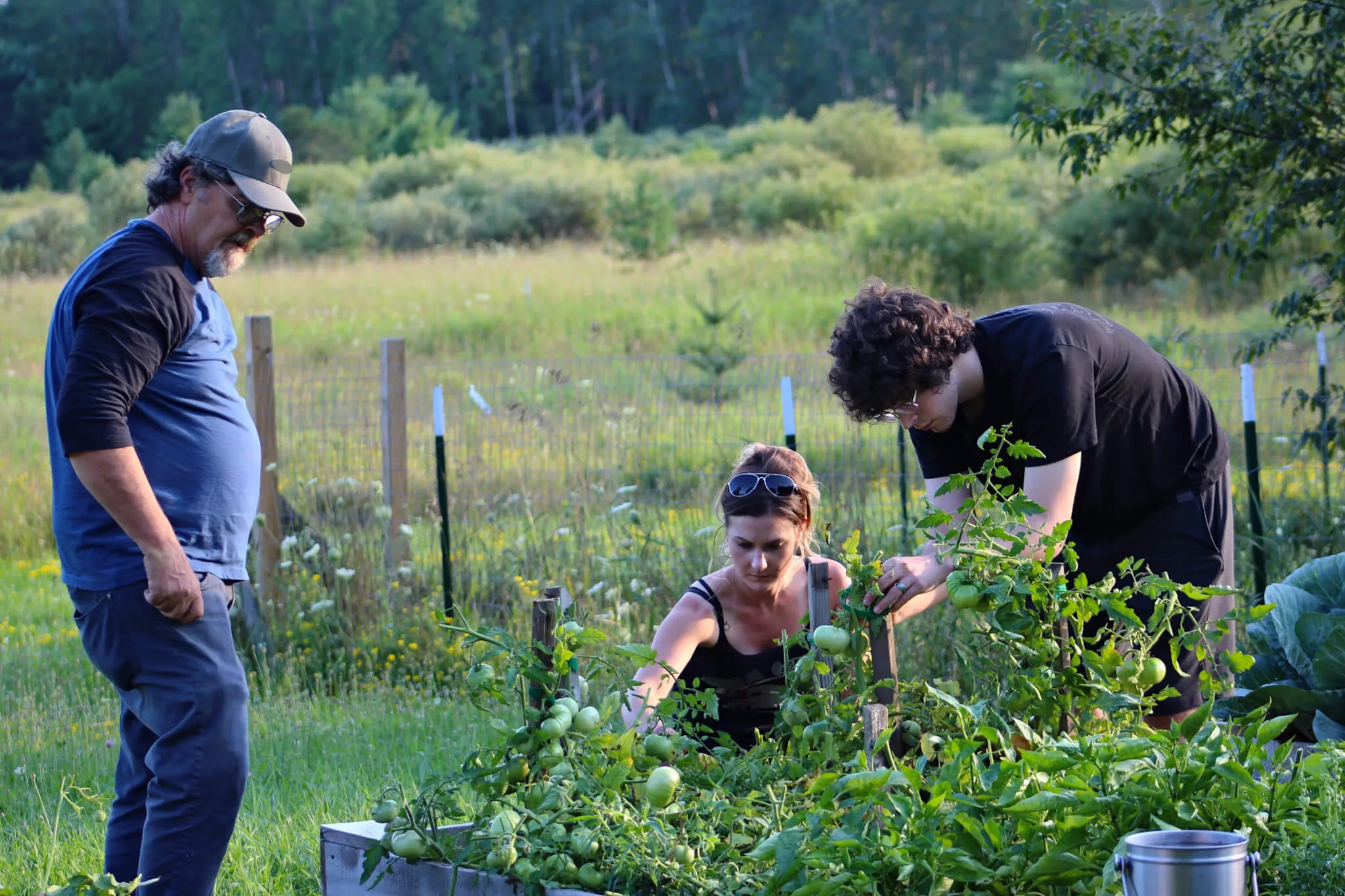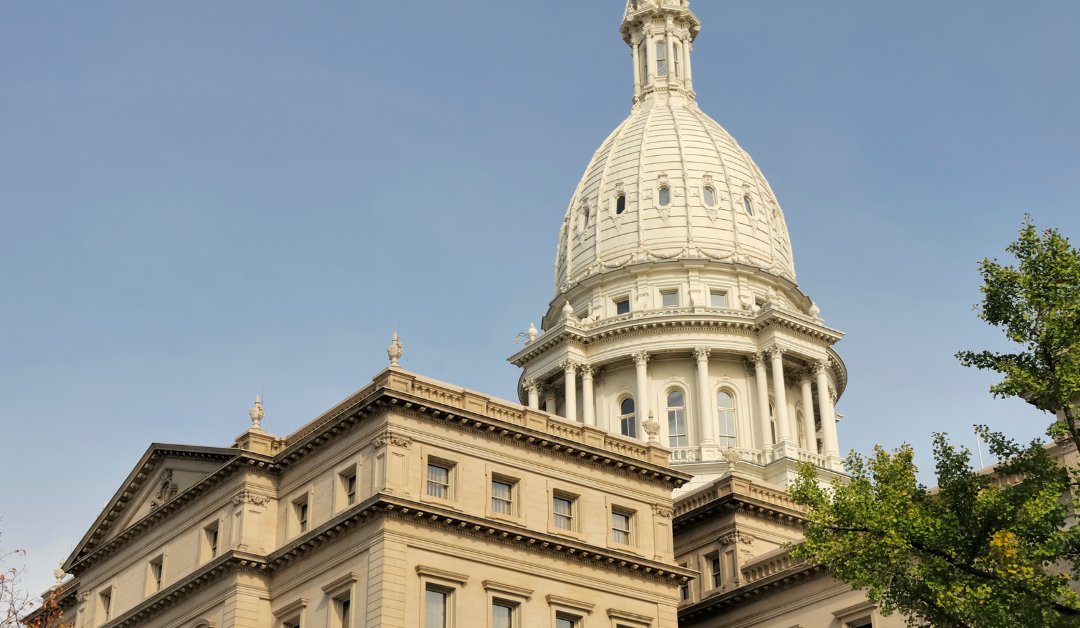
Monarchs. Moose. Mussels. Some of Michigan’s most iconic species are at risk. A bipartisan bill would help the state protect them, and us.
Need to Know
- Michigan has more than 300 at-risk species in the state.
- A federal bill would give states the freedom to protect them using resources at home.
- Young people and environmental organizations are pushing Congress for action.
KALAMAZOO, Mich.—Emerson Wesselhoff grew up an explorer, like many Michiganders do.
Some of her happiest memories, she says, were spent as a little girl playing on the shores of Lake Superior. She remembers the wind sweeping through the white pine forest, the expanse of ocean-esque blue, and the sand dunes sheltering the land just uphill.
“It’s like a whole other world,” Wesselhoff said.
Those times—at camp, immersed in nature—were formative for Wesselhoff.
Now, almost 10 years later, she’s speaking with Congressional offices, petitioning them to pass a bill that would help the state protect those same trees, water, and dunes and all the animals that call them home.
The Recovering America’s Wildlife Act (RAWA) of 2021 would put environmental stewardship into states’ hands, using a three-pronged approach of restoration, strategy, and education to bring threatened species back to healthy levels.
The Michigan-led proposal has broad-sweeping support from environmental organizations and a rare accord of bipartisanship so far in Congress.
“This bill presents a generational opportunity to secure lasting and meaningful funding to protect our most vulnerable species,” wrote Justin Tormei, a policy assistant for Michigan United Conservation Clubs.
Funds from the bill would not be a top-down federal plan. They’d land squarely at state agencies and tribal governments with wildlife action plans already in place to protect imperiled species; all that has been missing is funding. In Michigan, species that would benefit most include the moose, peregrine falcon, and monarch butterfly, among many other.
The funds aren’t limited to use for environmental preservation. They could also be used to educate and engage residents in very hands-on, outdoorsy (read “recreational”) ways.
But if not for the animals and not for the outdoors, the bill still has a tangible value to every Michigan resident. Many at-risk species are suffering because of health hazards in their air, water, and land. Restoring their habitat will also lead to cleaner lives for people, the Michigan Department of Natural Resources says.
“If passed, this once-in-a-generation opportunity could mean more than $1.3 billion for state-led conservation efforts, including roughly $27 million a year here at home,” the Michigan DNR website reads.
Fourth Time The Charm?
The problem, however, is that this isn’t the first time that a revolutionary climate and environment package has been introduced in Congress. This isn’t even the first time that the Recovering America’s Wildlife Act has been brought to the table.
The DNR website, in fact, carries much of its information over from 2019, back when Rep. Debbie Dingell (D-Dearborn) reintroduced the bill then. Efforts to pass this bill have dated back to 2016, one year after Dingell was sworn in.
Each time, Dingell has been greeted with bipartisan support. Each time, it’s failed to materialize into a final package and often a final vote.
In 2016, the bill died in committee. Same in 2018.
But Dingell has stuck with it, and this time, there’s growing optimism that it has a real chance to pass, with both branches of Congress controlled by Democrats and many Republicans crossing the aisle to support protecting the environment.
The package has more cosponsors than ever before, and it passed through committee.
“We are in the midst of an unprecedented biodiversity crisis and we need action now. The Recovering America’s Wildlife Act is a landmark change in the way we fund fish and wildlife conservation. Without action, the list of federally threatened and endangered species will grow from nearly 1,600 species today to thousands more in the future,” said Dingell in January, when the bill passed through the Committee on Natural Resources by a two-to-one margin.
This time, the language in the proposed legislation differs from previous attempts.
Funding is based on the geographic size, population, and number of endangered species within each state; before, it was just based on size and population. Michigan has more than 300 species at risk of extinction, and therefore, could receive a large chunk of funds to save those species.
On the Ground
As Congress waits for a vote on the bill, everyday Michiganders haven’t eased up on pressure.
In late February, students at some of Michigan’s biggest colleges joined up with advocacy groups to call their representatives and spread awareness in their communities about RAWA.
“With so many species at risk, wildlife conservation investments just make sense,” said Nashmia Akhtar, a Wayne State student and president of the Public Interest Research Groups (PIRGs) chapter, the same organization Wesselhoff is a part of at Kalamazoo College.
To date, the bill has 166 cosponsors who have signed onto the legislation. The support is bipartisan, but so far, Democrats have been much more easily convinced: Nearly three quarters of signees are Democrats, including Reps. Dan Kildee, Brenda Lawrence, Haley Stevens, Andy Levin, and Rashida Tlaib.
In sum, Michigan students spoke with three Congressional representatives, two Republicans and one Democrat.
Wesselhoff spoke with the two Republicans, asking for their vote on the impending legislation. The feedback she received was encouraging, she said.
“It gave me a lot of optimism,” Wesselhoff said.
Rep. Bill Huizenga (R-Holland) already cosponsored the bill, so Wesselhoff discussed with his staff how they could spread awareness.
Then, Wesselhoff and other students spoke with staff of Rep. Peter Meijer (R-Grand Rapids), who hasn’t indicated he’ll support the bill. The chat inspired his staff to further research the bill, Wesselhoff said.
Meetings like this happened across the country, as other PIRGS set up meetings with Congress.
“It’s all these little victories that add up and that’s what will bring this bill to a vote,” Wesselhoff said. “That’s what will get it passed.”
Diving Into the Environment
Calling these offices wasn’t Wesselhoff’s first foray into the politics behind environmentalism.
In 2020, as an incoming high school senior, she helped find the Ardea Youth Climate Coalition, a branch of the Kalamazoo Nature Center that educated high school seniors about the environment and directed them toward social outlets where they could impact change.
The program’s first year didn’t go quite according to plan. COVID-19 hit, and in-person meetups transitioned to Zoom calls.
But the group had still managed to make its voice heard.
By speaking up at Portage city council meetings, the coalition encouraged its slightly smaller neighbor to draft its own plan for how to protect its environment and community from climate change. The message got through.
Surprisingly, the mid-sized city adopted a resolution unprecedented in its history stating that it “commits to educating Portage residents about the climate crisis and accepts a role of leadership,” among other actions. The vote among council members was unanimous.
That’s one part of environmentalism that’s often overlooked, Wesselhoff said—talking to people.
“This deserves attention because while it is dedicated to protecting wildlife, … it’s very human too,” Wesselhoff said.
Speaking with staffers on the hill—albeit virtually—was much the same way.
Signing off from her call with Huizenga’s office, Wesselhoff felt a new breath of optimism about the prospects for saving Michigan wildlife.
Huizenga’s staff had agreed for the Republican Congressman would sign on for an op-ed about why it’s important that the Recovering America’s Wildlife Act be brought to a floor vote.
Though he’d already cosponsored the bill, Huizenga hadn’t issued a press release or been vocal about his support. His message to constituents could reach a whole new audience.
“It’s really fantastic to visualize and feel a part of the democratic process,” Wesselhoff said. “It gave me a lot of optimism, because we got Rep. Huizenga to write an op-ed with us.”
Politics

Mundy Twp. project gets state funding in effort to boost local manufacturing
More than $9 million awarded to a planned development project in Genesee County could provide a big boost to the local economy and help create...

It’s official: Your boss has to give you time off to recover from childbirth or get an abortion
Originally published by The 19th In what could be a groundbreaking shift in American workplaces, most employees across the country will now have...

Michigan Dems win special elections to regain full control of state government
LANSING—Democrats won back a majority in the Michigan House and restored their party's full control of state government Tuesday thanks to victories...
Local News

That one time in Michigan: When we became the Wolverine State
How did Michigan become tied to an animal that's practically nonexistent there? Among the many nicknames that the state of Michigan has, arguably...

Readers’ Choice: Top 5 Bowling Spots in Michigan
From retro lanes — including one of the oldest running bowling alleys in the country — to modern entertainment centers, there's something for...





